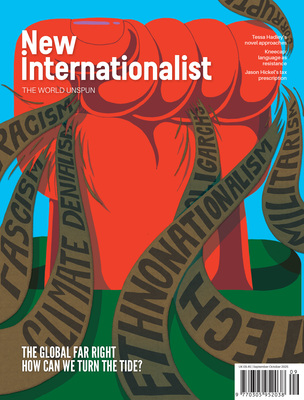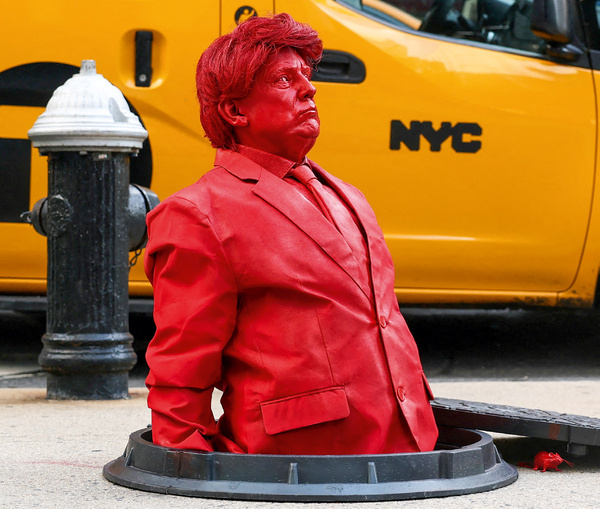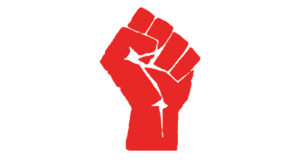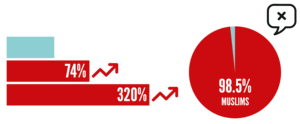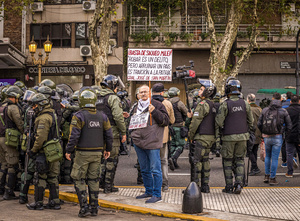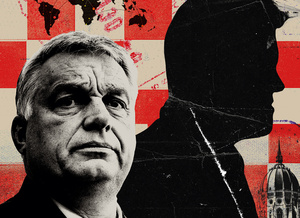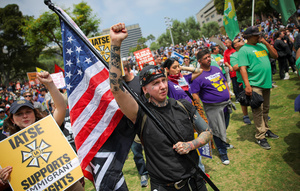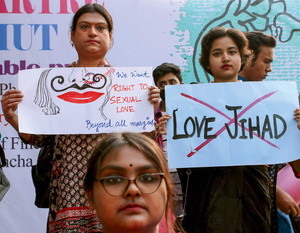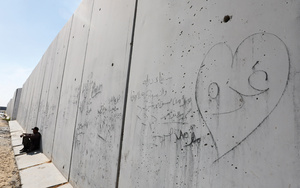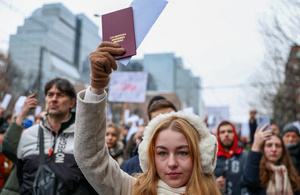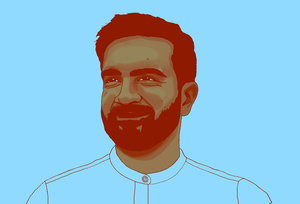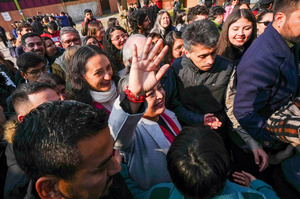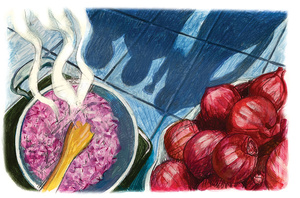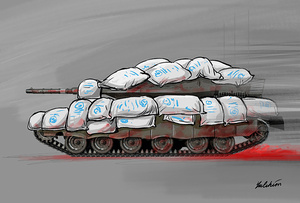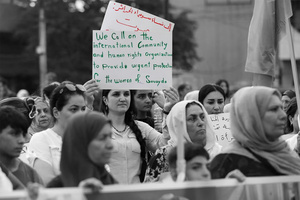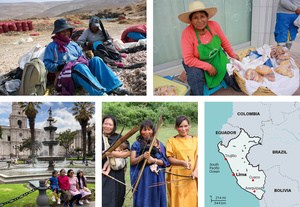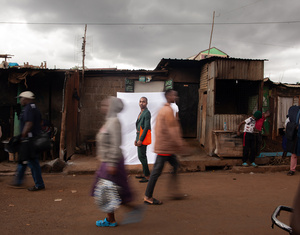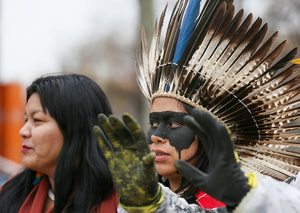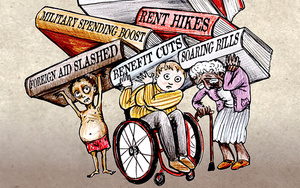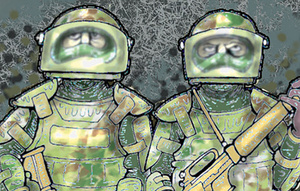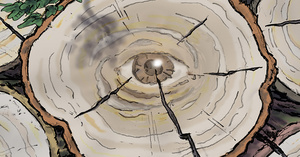The global far right
A note from the editor

Global far right
Among a sea of smiling faces I can just make out my 11-year-old grandmother, peering from the yellowing black-and-white photo. In the corner are the words ‘8 May 1945, VE Day’. Eighty years on, she remembers little about the street parties that erupted across Britain at the news of Nazi defeat – just the overwhelming relief that World War Two was over. But was the ideology ever truly beaten?
Today we’re seeing a global far right resurgence. Making historical comparisons can be unhelpful, but there are undeniable similarities to my grandmother’s childhood. In Nafeez Ahmed’s Alt Reich, the investigative journalist traces today’s reactionary politics to the fascist ideas cemented around 1930s nazism. This rise has been long in the making.
When K Biswas guest-edited our 2011 edition on the far right, he warned of a growing global movement – but few at that time were taking it seriously. Now the far right sits in governments across Europe, in the US, and in the Global South. As Biz told me recently: ‘When we first wrote about this it was theory, now it’s practice.’
So we’re shining a light on the subject again, with this edition funded by over 900 readers through our Rewire the World campaign. We explore the roots of this global phenomenon, and look to pockets of resistance around the world for answers. This topic is vast and fast-evolving, so there’s more to come online and via our podcast, The World Unspun.
I’ll sign off with a heartfelt thank you to our supporters who made this edition possible. Protecting people-powered independent media is a vital part of the fightback.
Bethany Rielly for the New Internationalist co-operative.
www.newint.org
The big story
In an age of despair, monsters rise from the gutter. Artist James Colomina’s sculpture of Donald Trump crawling from a Manhattan manhole unveiled on 23 July 2024, blurs the line between street art and social warning.
Photo: Kylie Cooper/Reuters
A time of monsters
557 - September, 2025
In an age of crisis, despair is the currency of the global far right. How, asks Bethany Rielly, can we turn this reactionary tide?
The Big Story
The global far right - The Facts
557 - September, 2025
Political Power; Hate Watch; Law and Order; Conspiracy Machine.
‘No-one can make it alone’
557 - September, 2025
Josefina Salomón reports from Buenos Aires’ neglected barrios where social movements are sharpening the playbook against Javier Milei’s ruthless austerity drive.
Orbán's secret weapon
557 - September, 2025
Meet Árpád Habony, the mysterious man behind Viktor Orbán’s rise to power. He’s now working in the shadows to take Hungary’s far-right model global. Connor Mulhern and Balázs Turcsán investigate.
They’re Coming for the Trade Unionists
557 - September, 2025
Workers are resisting Trumpism – but some corners remain silent. America’s labour movement must now decide if it will stand against fascism or fall with it, argues Kim Kelly.
Love against the mob
557 - September, 2025
Interfaith couples in India are asserting their right to get married, despite threats of violence. Arshu John and Poorvi Gupta speak to the courageous lovers, activists and lawyers standing against extremists.
Snapshots of resistance
557 - September, 2025
Around the world, ordinary people are pushing back against the influence of the far right. Bethany Rielly looks at the work of three organizations using culture and conversation to counter hate in their communities.
Five small ways to resist
557 - September, 2025
Resisting the far right surge. Words by Paula Lacey & Bethany Rielly.
The stories we tell
557 - September, 2025
Tech oligarchs are co-opting fictional universes to sell us a false story of their inevitability. To defeat them we need to reclaim the power of fiction to imagine a world beyond their grasp, argues Elia Ayoub.
Who should pay for public services?
557 - September, 2025
The left needs a better, more ambitious message when it comes to taxation, argues Jason Hickel.
You’ve got issues, mate
557 - September, 2025
Thanks to a hit film and a terror charge, the hip-hop trio Kneecap are better known than ever before. Far from attention-seeking, their antics bring a proud tradition of cultural resistance to a new frontier, writes Decca Muldowney.
Comment
Where does this end?
557 - September, 2025
New Internationalists' view on the proscription of protest.
Currents
Unwelcome
557 - September, 2025
Egypt keeps displaced Palestinians in legal limbo, denying them stability and rights. By Rebecca Ruth Gould.
Mass deportation
557 - September, 2025
Iran escalates mass expulsions, sending Afghans back to a country many have never known. By Zoe Holman.
Garment sector under threat
557 - September, 2025
US trade uncertainty threatens to wipe out Haiti’s last major source of formal jobs. By Gabriella Jozwiak.
Briefly
557 - September, 2025
Not matcha left; Deadly tensions; Unprecedented posting; French exit; No say, no way; The right to die.
A dirty project
557 - September, 2025
UK-backed gas scheme in Mozambique faces renewed legal challenge over human rights and climate harms. By Ilham Rawoot.
Forced Labour
557 - September, 2025
Investigation links global brands to forced labour of Uyghur and other minorities across China’s supply chains. By Michael Ackerman.
No stopping
557 - September, 2025
Serbia’s student-led anti-corruption movement endures despite state repression and political impasse. By Nikola Teodosić.
Wheels of repression
557 - September, 2025
Kashmir’s new rail link raises fears of deeper occupation, resource exploitation and political disenfranchisement. By Mubashir Naik & Irshad Hussain.
Introducing... Zohran Mamdani
557 - September, 2025
Zohran Mamdani’s insurgent mayoral bid pits a left-populist vision against entrenched centrists and the Republican right. By Richard Swift.
Left resurgence
557 - September, 2025
Communist candidate Jeannette Jara energizes Chile’s left with promises of wealth reform and social investment. By Isabella Poderico.
Reformer to rogue
557 - September, 2025
Tanzania’s first female president reverses early reforms, tightening authoritarian control ahead of elections. By Obiora Ikoku.
Reasons to be Cheerful
557 - September, 2025
Community constitution; Embargo endorsed; Freedom at last.
Regulars
A rite of passage
557 - September, 2025
Labouring for hours over six kilos of simmering onions, Maya Misikir reflects on the invisible weight of ‘women’s work’, family and gratitude.
Sign of the Times
557 - September, 2025
Syrian Kurds protest violence against Druze communities in Suweida.
‘All you can hear are patients screaming out in pain’
557 - September, 2025
Returning from Gaza, British doctor Victoria Rose tells Subi Shah of operating under fire, documenting war crimes and calling out Israel’s propaganda.
Southern Exposure: Anwar Sadat Swaka
557 - September, 2025
Highlighting the work of artists and photographers from the Majority World.
‘We’re not just there for you to photograph’
557 - September, 2025
Indigenous peoples are demanding a real seat at the table of the UN climate talks. Words by Danny Chivers.
What if...
557 - September, 2025
we abolished the family? John Duncan imagines life beyond capitalism’s most sacred institution.
Agony Uncle: Far-right friends
557 - September, 2025
Struggling with an ethical dilemma? New Internationalist’s Agony Uncle can help you find answers in our troubled political times.
Film, Book & Music Reviews
Mixed Media: Books
557 - September, 2025
You Can Kill Each Other After I Leave; Planet Patriarchy; To the Moon; In Transit.
Books Essay: Sleepwalking to submission
557 - September, 2025
A veteran economist lifts the lid on the perils of international aid. By Graeme Green.
Spotlight: Tessa Hadley
557 - September, 2025
In Tessa Hadley’s novels, ordinary lives and homes become charged with memory and unease, where private dramas quietly echo the politics of their time. Words by Conrad Landin.
